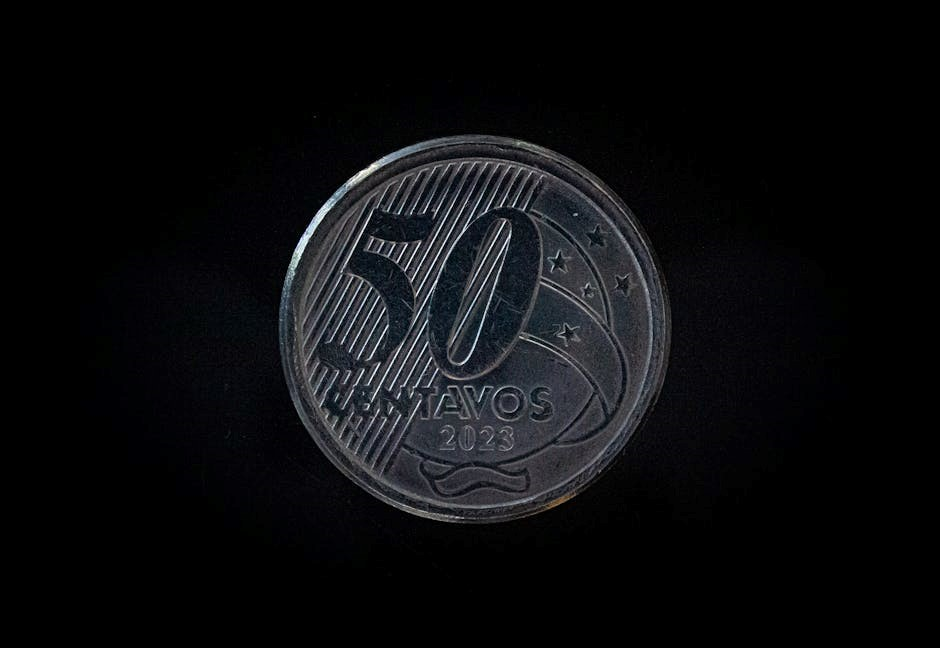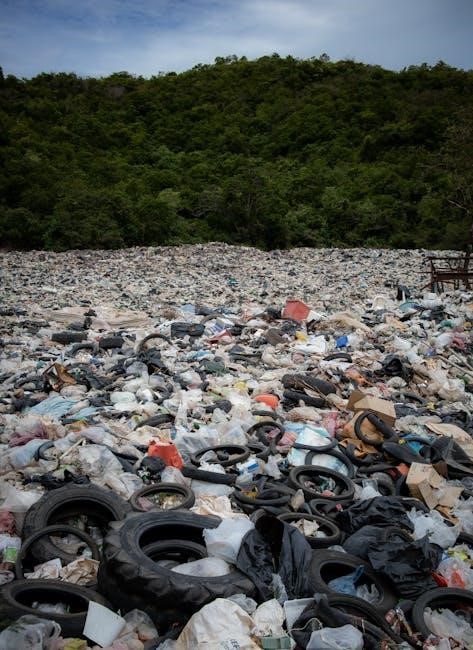The Miami-Dade County recycling schedule for 2023 provides residents with a comprehensive guide to proper waste management and collection dates. It includes details on accepted materials, collection frequencies, and special programs to ensure efficient recycling practices.
Overview of Miami-Dade County’s Recycling Program
The Miami-Dade County Recycling Program is designed to promote sustainability and reduce waste through efficient collection services. The program offers curbside recycling, bulk waste collection, and special events for hazardous materials. Residents can access detailed schedules and guidelines through the official Miami-Dade County website or the 2023 Recycling Schedule PDF. The program emphasizes proper sorting of materials, such as paper, plastics, and glass, to minimize contamination. Additionally, the county provides resources like address-specific lookup tools and educational materials to help residents participate effectively. By fostering community involvement, the program aims to create a cleaner, more environmentally friendly Miami-Dade County.
Importance of Recycling in Miami-Dade County
Recycling plays a vital role in preserving Miami-Dade County’s environment and promoting sustainability. By participating in the recycling program, residents help reduce landfill use, conserve natural resources, and lower greenhouse gas emissions. Recycling also supports the local economy by creating jobs in the recycling industry. Proper waste management through recycling helps protect the county’s unique ecosystems, including its beaches and Everglades. Additionally, recycling reduces the need for producing new materials, saving energy and reducing pollution. Community involvement in recycling fosters a sense of responsibility and contributes to a cleaner, healthier environment for future generations. Every effort counts in making Miami-Dade County a sustainable place to live.

Understanding the 2023 Recycling Schedule
The 2023 Miami-Dade recycling schedule provides detailed collection dates, helping residents stay organized and informed about their recycling responsibilities throughout the year.
How to Access the 2023 Miami-Dade Recycling Schedule PDF

Residents can easily access the 2023 Miami-Dade recycling schedule PDF through the official Miami-Dade County website. The PDF is available in both English and Spanish, ensuring accessibility for all residents. To download it, visit the Miami-Dade County Solid Waste Management website and search for “2023 Recycling Schedule.” Click on the provided link to download the PDF, which includes detailed collection dates, accepted materials, and helpful guidelines. The PDF is user-friendly and serves as a vital resource for staying informed about recycling practices. For convenience, the document can be saved or printed for quick reference throughout the year. Visit the official website today to download your copy and stay up-to-date on Miami-Dade’s recycling program. Download the 2023 Miami-Dade Recycling Schedule PDF here.

Key Dates and Collection Frequency
Miami-Dade County’s 2023 recycling schedule outlines specific collection dates and frequencies to help residents stay organized. Recycling is typically collected every other week, with dates varying by neighborhood. Key dates include the start of the collection cycle, holiday adjustments, and special collection events. Residents can confirm their exact dates using the address-specific lookup tool or the PDF schedule. The collection frequency ensures consistent service, but dates may shift due to holidays like Memorial Day or Independence Day. It’s essential to verify your neighborhood’s schedule annually, as routes and dates may change. For accurate information, refer to the official Miami-Dade County resources or contact customer service. Staying informed helps maximize recycling participation and efficiency throughout the year.
Materials Accepted in Curbside Recycling
Miami-Dade County’s curbside recycling program accepts a variety of materials to promote sustainability. Residents can recycle plastics (bottles, jugs, and containers labeled #1-#7), metals (aluminum and steel cans), glass (bottles and jars), and paper products (newspaper, cardboard, and cartons). These items should be clean, dry, and sorted properly to ensure efficient processing. Food and liquid residues, lids, and broken glass are not accepted, as they can contaminate the recyclables. By participating in curbside recycling, residents contribute to reducing landfill waste and conserving natural resources. Always refer to the 2023 Miami-Dade recycling schedule PDF or the county’s website for the most accurate and updated list of accepted materials. Proper recycling practices help maintain a healthier environment and community.
Materials Not Accepted in Curbside Recycling
Miami-Dade County’s curbside recycling program does not accept certain materials to maintain the integrity of the recycling process. Items like plastic bags, styrofoam, broken glass, and food-contaminated materials are not accepted, as they can damage equipment or contaminate recyclables. Scrap metal, window glass, and mirrors are also excluded, as they require special handling. Residents should avoid including hazardous waste, such as batteries or electronics, in curbside recycling. Additionally, yard waste and bulk items are handled through separate programs. Properly sorting materials ensures efficient recycling and helps prevent items from being sent to landfills. Always consult the 2023 Miami-Dade recycling schedule PDF or official resources for a detailed list of non-accepted materials to recycle responsibly and effectively.

Special Collections and Programs
Miami-Dade County provides special collections for bulk waste, hazardous materials, and electronics, ensuring responsible disposal and recycling. These programs supplement regular curbside services, enhancing sustainability efforts countywide.
Bulk Waste Collection Schedule
The bulk waste collection schedule in Miami-Dade County for 2023 is designed to help residents manage large items not accepted in regular curbside pickup. Bulk waste, including furniture, appliances, and mattresses, is collected on designated days based on residential zones. Residents must schedule bulk pickups separately, typically with a 24-hour notice, by contacting the county’s waste management department. Collections occur twice annually for single-family homes, while multifamily properties follow a different schedule. Items must be placed curbside by 7:00 AM on the scheduled day, ensuring they are accessible and properly separated from recyclables and regular trash. This service promotes efficient waste management and supports the county’s sustainability goals.
Hazardous Waste Collection Events
Miami-Dade County organizes hazardous waste collection events throughout 2023 to ensure safe disposal of harmful materials. These events are free for residents and aim to protect the environment by keeping hazardous waste out of landfills. Common items accepted include batteries, electronics, fluorescent bulbs, pesticides, and household chemicals. Events are held at various locations across the county, with dates listed in the 2023 recycling schedule. Residents must verify the specific materials accepted and prepare items according to guidelines, such as separating liquids and keeping items in original containers. These events are crucial for maintaining environmental safety and promoting sustainable waste management practices countywide.
Electronics Recycling Drop-Off Locations
Miami-Dade County provides convenient electronics recycling drop-off locations for residents to responsibly dispose of electronic waste. These locations accept items like computers, phones, tablets, televisions, and printers. The 2023 recycling schedule PDF includes a list of authorized drop-off sites, ensuring accessibility across the county. Residents can also check the Miami-Dade waste management website for real-time updates. Proper recycling of electronics prevents hazardous materials from entering landfills and supports resource recovery. By utilizing these drop-off locations, residents contribute to environmental conservation and adhere to county regulations. It’s essential to verify accepted items and hours of operation before visiting a site to ensure a smooth recycling process.
Yard Waste and Green Waste Collection
Miami-Dade County offers yard waste and green waste collection services to help residents manage organic materials. The 2023 recycling schedule PDF outlines the designated collection days for yard waste, which includes leaves, branches, grass clippings, and other organic materials. Residents are encouraged to place yard waste in securely tied bundles or containers, ensuring compliance with size and weight limits. Green waste, such as palm fronds and tree trimmings, is also accepted. Collection frequencies vary by area, with most neighborhoods receiving weekly or bi-weekly service. Proper disposal of yard waste supports environmental sustainability by reducing landfill waste and promoting composting. For detailed guidelines and collection schedules, residents can refer to the Miami-Dade County 2023 recycling schedule PDF or visit the official website.

Tools and Resources for Residents
Miami-Dade County provides residents with tools like address-specific recycling calendars, mobile apps, and customer service contacts to stay informed about the 2023 recycling schedule and programs.
Address-Specific Recycling Lookup Tool
Miami-Dade County’s address-specific recycling lookup tool allows residents to access personalized recycling schedules tailored to their exact location.
By entering their address online, residents can view their specific collection dates, materials accepted, and additional waste management details.
This tool ensures accurate and convenient access to recycling information, helping residents stay informed and participate effectively.
It also provides guidance on preparing materials and notifications for special collections.
Available on the county’s official website, this resource enhances recycling efficiency and compliance, making it easier for residents to contribute to sustainability efforts in their community.
Recycling Calendar Digital Download Options
Miami-Dade County offers digital download options for the 2023 recycling calendar, making it convenient for residents to stay organized.
The recycling schedule is available in formats like PDF, ensuring easy access and printing.
Residents can download the calendar from the county’s official website, allowing them to plan ahead for collection dates.
Additionally, some residents can sync the schedule with their digital calendars via iCal or similar tools.
This feature helps set reminders and track collection days effortlessly.
The digital format is environmentally friendly and reduces the need for physical copies, aligning with the county’s sustainability goals.
By downloading the calendar, residents can ensure they never miss a recycling collection day.
Mobile App for Recycling Reminders
Miami-Dade County offers a mobile app designed to help residents stay informed about recycling schedules and reminders.
The app provides real-time updates on collection dates, ensuring residents never miss a pickup.
Users can input their address to receive personalized notifications for recycling, bulk waste, and hazardous waste collection.
The app also includes a materials lookup tool, helping residents identify what can and cannot be recycled.
Available for both iOS and Android devices, the app is a convenient resource for staying organized and committed to recycling.
By leveraging technology, the county aims to enhance participation and simplify the recycling process for all residents.
Customer Service Contact Information
Miami-Dade County provides residents with accessible customer service to address recycling-related inquiries.
The main contact number for recycling services is 305-514-6666.
Residents can also reach out via email at recycling@miamidade.gov for general questions or concerns.
For special requests, such as bulk waste pickups, call 305-596-2825.
The Miami-Dade County Solid Waste Management Office is located at 2377 NW 87th Ave, Doral, FL 33172.
Office hours are Monday through Friday, 8:00 AM to 5:00 PM.
This resource ensures residents can easily access assistance for all recycling and waste management needs.

Changes and Updates in 2023
Miami-Dade County implemented updates to the 2023 recycling schedule, including new collection times and expanded service areas. Residents should review the revised guidelines for accurate participation.
Revised Collection Routes and Schedules
In 2023, Miami-Dade County introduced revised collection routes and schedules to enhance efficiency and better serve residents. These changes aim to streamline recycling and waste pickup services. Some neighborhoods experienced adjustments in collection days, while others saw shifts in pickup times. Residents are encouraged to refer to the updated 2023 Miami-Dade Recycling Schedule PDF for specific details about their area; The revised routes ensure more consistent service delivery and improved resource allocation. Additionally, bulk waste collection schedules were modified in certain districts. Residents can use the Address-Specific Recycling Lookup Tool to confirm their new collection dates and materials accepted. Staying informed helps ensure participation in the program remains seamless and effective.
New Recycling Guidelines for 2023
Miami-Dade County has introduced updated recycling guidelines for 2023 to improve program efficiency and reduce contamination. The new rules clarify acceptable materials, emphasizing clean, dry, and properly sorted items. Residents are now required to rinse food and liquid residues from containers before recycling. Additionally, lids and caps should be removed, as they are not recyclable in curbside programs. Small electronics and batteries are no longer accepted in curbside recycling and must be taken to designated drop-off locations. These changes aim to align with global recycling standards and enhance the quality of collected materials. Residents can find detailed instructions in the 2023 Miami-Dade Recycling Schedule PDF and use the Address-Specific Recycling Lookup Tool for personalized guidelines.
Expanded Recycling Programs in 2023
Miami-Dade County has expanded its recycling programs in 2023 to include more materials and services, enhancing community participation. New initiatives now accept textiles, scrap metal, and bulk cardboard at select drop-off locations. Additionally, a pilot program for organic waste collection has been launched in specific neighborhoods, aiming to divert food waste from landfills. The county has also increased the number of electronics recycling drop-off points and added more hazardous waste collection events. These expansions are part of a broader effort to meet sustainability goals and make recycling more accessible. Residents can find details about these new programs in the 2023 Miami-Dade Recycling Schedule PDF and through the Customer Service Contact Information for further inquiries.

Community Education and Outreach
Miami-Dade County emphasizes community education through workshops, events, and partnerships with schools and businesses to promote recycling awareness and encourage participation in the 2023 program.
Recycling Workshops and Events
Miami-Dade County hosts various recycling workshops and events to educate residents about the 2023 recycling schedule and proper waste management practices. These interactive sessions are designed to engage the community, providing hands-on learning opportunities and answering questions about recycling best practices. Topics often include understanding the recycling schedule, preparing materials correctly, and reducing waste. Residents can participate in workshops at local libraries, community centers, or virtual webinars. Additionally, annual events like Earth Day celebrations and neighborhood clean-up initiatives include recycling education. These efforts aim to foster a culture of sustainability and ensure everyone can contribute effectively to the county’s recycling goals. Check the official Miami-Dade website or the 2023 recycling schedule PDF for event details and registration information.
Educational Materials and Guides
Miami-Dade County provides a variety of educational materials and guides to help residents navigate the 2023 recycling schedule and improve their recycling practices. These resources include downloadable PDF guides, infographics, and brochures available on the county’s official website. Residents can access detailed information about acceptable materials, collection dates, and preparation tips. The materials are designed to be user-friendly, offering clear instructions and visual aids to ensure everyone understands the recycling process. Additionally, the county distributes printed copies of these guides at community centers and libraries. These resources are essential for residents to stay informed and participate effectively in Miami-Dade’s recycling program, making it easier to contribute to a more sustainable community.
Partnerships with Local Schools and Businesses
Miami-Dade County collaborates with local schools and businesses to promote recycling education and participation. Through partnerships, the county provides tailored programs and resources to engage students and employees. Schools integrate recycling lessons into curriculums, while businesses receive training and incentives to improve their recycling practices. These partnerships foster a culture of sustainability, encouraging residents and organizations to actively contribute to the county’s environmental goals. By working together, Miami-Dade aims to increase recycling rates and reduce waste, ensuring a cleaner and greener community for future generations. These initiatives are complemented by the 2023 recycling schedule, which serves as a key resource for participants.

Benefits of Recycling in Miami-Dade
Recycling in Miami-Dade reduces landfill use, conserves natural resources, and lowers greenhouse gas emissions, fostering a sustainable future for the community and environment.
Environmental Impact of Recycling
Recycling significantly reduces Miami-Dade’s environmental footprint by conserving natural resources and decreasing landfill dependency. By reusing materials like paper, plastic, and glass, the county lowers energy consumption and water usage required for production. This reduction minimizes greenhouse gas emissions, combating climate change. Recycling also helps preserve ecosystems by reducing pollution from waste decomposition in landfills. Additionally, it decreases the need for mining and deforestation, protecting biodiversity. The 2023 recycling schedule encourages residents to participate, ensuring waste is managed sustainably. By adhering to the program, Miami-Dade fosters a cleaner, greener environment for future generations. Recycling is a vital step toward achieving long-term environmental health and resilience.
Cost Savings from Recycling Programs
Miami-Dade’s recycling programs yield significant cost savings by reducing landfill expenses and energy consumption. Recycling materials like aluminum, steel, and glass lowers production costs compared to manufacturing from raw materials. This translates to financial benefits for both the county and residents. Additionally, recycling reduces the need for landfill expansion, saving taxpayer dollars on construction and maintenance. The 2023 recycling schedule helps optimize collection routes, further cutting operational costs. By participating in these programs, residents contribute to a more efficient and cost-effective waste management system. These savings are reinvested into community services and sustainability initiatives, fostering a more economically and environmentally resilient Miami-Dade County.
Community Involvement and Awareness
Community involvement and awareness are crucial for the success of Miami-Dade’s recycling programs. The 2023 recycling schedule encourages residents to take an active role in sustainability efforts. Educational campaigns, workshops, and neighborhood events highlight the importance of proper recycling practices. Local schools, businesses, and organizations collaborate to promote environmental stewardship. By engaging residents, Miami-Dade fosters a culture of responsibility and shared commitment to reducing waste. Increased awareness leads to higher participation rates, ensuring the program’s effectiveness. This collective effort not only benefits the environment but also strengthens community bonds and fosters a sense of pride in contributing to a greener future for Miami-Dade County.
The 2023 Miami-Dade Recycling Schedule supports sustainability goals by organizing waste management. Residents’ active participation is key to achieving long-term environmental benefits and protecting the environment effectively.
Final Tips for Effective Recycling Participation
To maximize recycling impact, residents should regularly check the 2023 Miami-Dade Recycling Schedule PDF for updates. Ensure materials are properly sorted and clean to avoid contamination. Use the address-specific lookup tool for personalized collection details. Participate in special collections for bulk and hazardous waste to reduce landfill use. Stay informed through the mobile app or digital calendar for reminders. Educate family and neighbors to foster community-wide participation. Report missed collections promptly to maintain efficiency. By following these steps, residents can contribute effectively to Miami-Dade’s sustainability goals and help preserve the environment for future generations.
Staying Informed About Recycling Updates
Staying informed about recycling updates is crucial for effective participation. Miami-Dade County regularly updates its recycling schedule and guidelines, so residents should check the official website or download the 2023 Miami-Dade Recycling Schedule PDF for the latest information. Subscribe to newsletters or follow local government social media accounts for real-time updates. Use the address-specific lookup tool to confirm collection dates and materials. Additionally, download the recycling calendar or set reminders on the mobile app to stay on track. Regularly reviewing the schedule ensures compliance with any changes in collection routes or accepted materials. By staying informed, residents can contribute seamlessly to Miami-Dade’s recycling efforts and support environmental sustainability.

FAQs and Additional Resources
Visit the official Miami-Dade County website for the 2023 Recycling Schedule PDF. Check the Department of Solid Waste Management for updates. Access FAQs, downloadable guides, and contact information for assistance. Use the address-specific lookup tool for personalized details. Find links to recycling calendars, collection guidelines, and community resources. Stay updated with the latest on materials acceptance and special collections. Contact customer service for additional support or clarification on recycling procedures. Ensure you have the most current information for efficient recycling participation.
Frequently Asked Questions About Recycling
What materials are accepted in curbside recycling? Miami-Dade accepts paper, plastic bottles, cans, and glass. How do I find my collection schedule? Use the address-specific lookup tool. What if I miss my pickup? Check the schedule for the next collection date. Can I recycle bulk waste? Yes, but schedule a bulk pickup separately. Where can I find the 2023 Recycling Schedule PDF? Download it from the Miami-Dade County website. How should recyclables be prepared? Rinse and place them loose in the bin. What about hazardous waste? Attend special collection events. Can electronics be recycled? Yes, at designated drop-off locations. What if I have yard waste? It’s collected separately on designated days. How do I stay updated? Sign up for reminders via the mobile app or website.
Links to Miami-Dade Recycling Resources
For more information on the Miami-Dade recycling schedule and programs, visit the Miami-Dade County Environmental Resources website. Download the 2023 Recycling Schedule PDF directly. Use the address-specific recycling lookup tool for personalized schedules. Explore educational guides and upcoming collection events. Stay updated with the Miami-Dade Recycling mobile app. Contact customer service for assistance. These resources help residents participate effectively in recycling programs.
